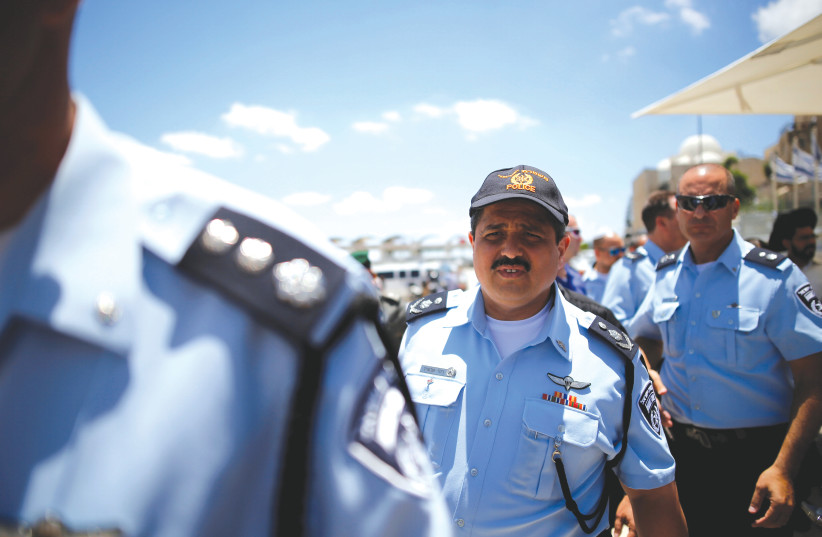Lawyers in the public corruption trial of former prime minister Benjamin Netanyahu renewed their fight over the impact of the Pegasus police spying allegations on the case before the Jerusalem District Court on Monday.
In early February, when the spying scandal allegations broke out, the case was paused in the middle of the testimony of prosecution witness Cable Authority legal adviser Dana Neufeld, who was testifying about the legality of the Bezeq-YES merger at the center of the Case 4000 media bribery allegations.
At the time, lawyers for the defense claimed that the entire trial should be canceled or at least halted for an extended period in order to dig into the allegations against the police for spying.
Since then, However, the Netanyahu prosecution team as well as the broader review performed by Deputy Attorney-General Amit Merari along with Mossad and Shin Bet (Israel Security Agency) officials last week, found that there was no broad conspiracy and no wide-ranging law-breaking by the police.

At this point, the debate is expected to at least partially revolve around whether the hacking of Filber's cell phone was a sufficient violation to lead to invalidating aspects of his testimony and related evidence.
The prosecution has argued that the hacking was connected to an earlier court order which gave them physical access to his cell phone, such that even if the hacking went beyond the court order, it was not a significant violation.
In addition, they argue that nothing which the police cyber unit collected during the hacking was used for the purposes of the indictment.
If true, this could help overcome the defense's attempt to invalidate Filber-related evidence.
Elovitch lawyer Jacques Chen said on Monday that it was crucial for the court to consider that the Merari report was based on an initial review performed by the police checking itself.
Chen said this was an improper method that harms the validity of the report.
Further, he said that Filber decided to flip into being a state's witness shortly after the cell phone hacking took place on February 15, 2018, such that the claim that the hacking had no impact on the case was nonsensical.
He slammed the prosecution for arguing that it does not need to fully give over evidence related to Filber and the hacking.
The prosecution has issued two confidential declarations, on February 16 and 24, noting materials for the defense that it does not plan to turn over either because it is classified or is not relevant to the legal defense team's case.
Chen said the prosecution's claims to keep the materials from the defense, under the circumstances, cannot stand, and asked the court to order the materials turned over to the defense.
Unusual authorities attending the hearing included Prosecution Cyber Department Director Chaim Vizmonsky and a number of senior police officials.
Prosecution lawyer Yehudit Tirosh informed the judges that all of these officials were ready to give a special classified presentation of all materials in dispute outside of the presence of the media and the defense.
Responding to Chen and Netanyahu lawyer Boaz Ben Tzur, Tirosh said that she could not discuss in open court in front of the defense what kinds of items were hacked from Filber’s cell phone without breaching the police cyber unit’s sources and methods.
In fact, she even admitted that she herself had not looked over these materials in order to insulate her from any claims that these materials were used for the case.
This set off the defense lawyers even more as they said the court cannot trust Tirosh if she has not even seen what the police cyber unit hacked from Filber’s cell phone.
Eventually, Tirosh convinced the court to hear from the cyber prosecution and police officials in a closed classified hearing separate from the defense and the media.
On Monday night, the court ordered that hearings on the issue both in public and in closed session would continue on Tuesday without stating whether it would decide the issue Tuesday night or whether there would be additional hearings.
